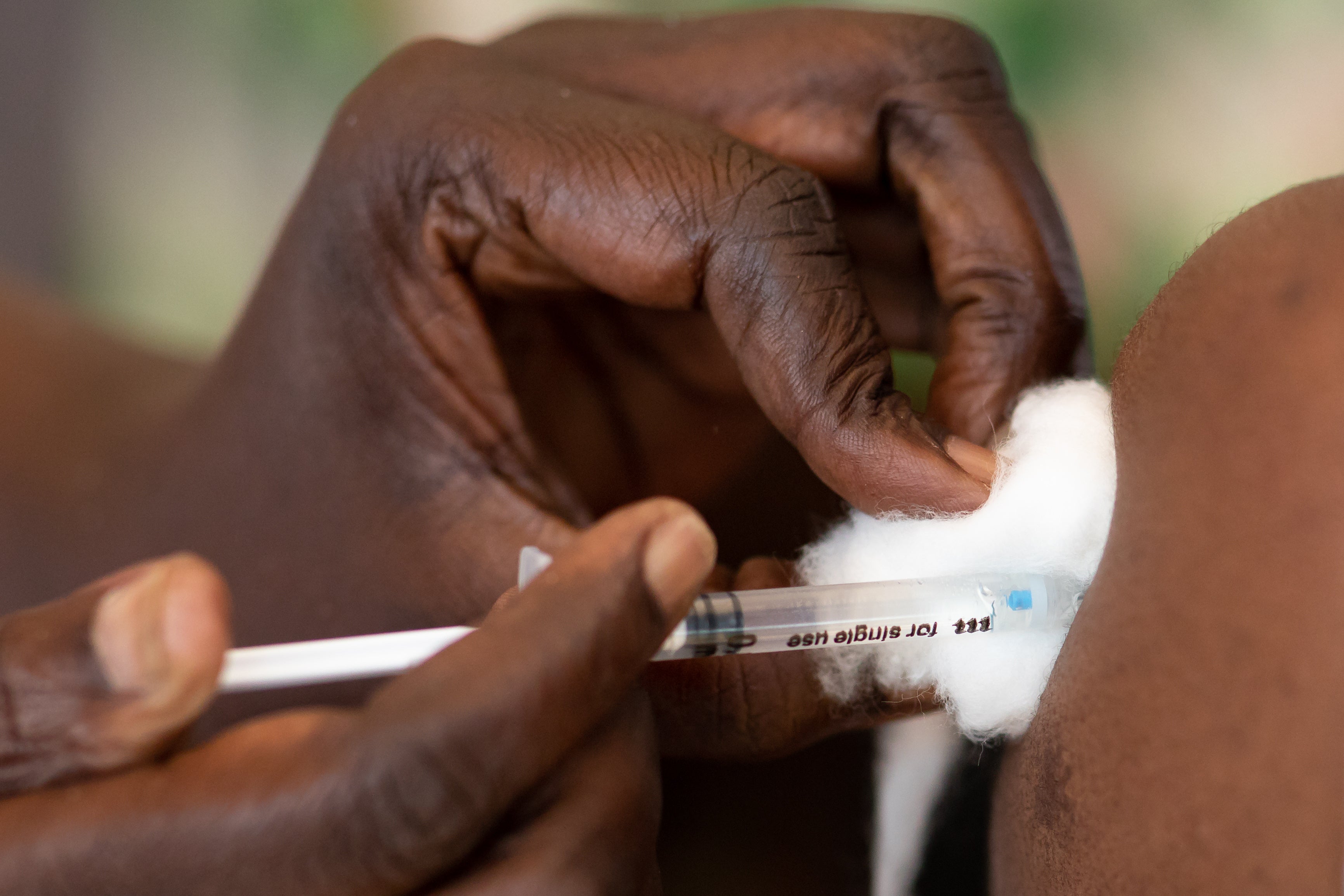The aftermath of the pandemic could herald a new era of leadership for African women
As always, women are the first victims of extreme hardship; yet Covid has also served to underscore the extent to which society relies on women – both on the frontline and at home

In times of extreme hardship, whether famine, epidemic or war, women have traditionally borne the worst of the suffering. The current global pandemic is no exception.
Throughout the past 18 months, according to the UN, women have been more likely to lose their jobs and businesses; more likely to have to take on additional and unpaid domestic labour; and less likely to have proper access to healthcare. We face all the above in tandem with a terrifying global spike in domestic and gender-based violence.
The situation is even worse in developing countries. Across Africa, insufficient access to vaccines is forcing governments to turn to strict, economically ruinous lockdowns as the only public health tool at their disposal. The impact on the economies of what are already some of the poorest countries in the world is severe, exacerbating poverty, instability and violence. As always, women are the first victims.
And yet, the pandemic has also served to underscore the extent to which society relies on women – both on the frontline and at home. It is mostly women who take on the additional labour of looking after children sent home from closed schools. It is mostly women working as nurses and other support roles in our overcrowded hospitals.
And crucially, in those countries that have fared best throughout the pandemic, women have had a seat at the table helping to shape their countries’ responses to and recovery from the worst global health crisis in living memory. Sadly, in too many countries in Africa, women have remained barred from pandemic and post-covid decision-making.
One exception is Uganda, ranked by The Lancet as the best in Africa – and one of the very best nations in the world – for our response to the first wave of the pandemic. Today, as many on our continent are now battling the third wave, Uganda is steadily reducing infections of the second, and continues to maintain one of the lowest death rates anywhere worldwide.
Perhaps it is no coincidence Uganda boasts a long and unique history of promoting women into leadership positions. Our vice president, Jessica Alupo, is a woman. In fact, we were the first African nation to appoint a woman vice president in 1995 – medical doctor Specioza Wandira.
Today, Dr Wandira advises the president on health. She is joined by epidemiologist Dr Monica Musenero, who was recently appointed science and technology minister; the minister for health and medical doctor Dr Jane Ruth Aceng; and Dr Diana Atwiine, the health ministry’s most senior civil servant. All report to our new female prime minister, Robinah Nabbanja. Overall, 35 per cent of the cabinet are women, and every single one of Uganda’s 146 districts is represented in parliament by at least one female MP.
When women make up just under half of the global population – and in Africa, it’s more than half – this represents a staggering (and still largely untapped) resource. It stands to reason that those governments that leverage it will fare better in any crisis; those that don’t, won’t. Uganda does – and I believe the results are plain to see.
Yet unfortunately, even here, hard-fought gains for women’s’ rights have never felt more at risk. Uganda’s women have not escaped the disproportionate economic impact of the pandemic, nor the frightening spike in domestic violence seen around the world.
But it took a world war to secure women’s suffrage in the UK – today one of the world’s leading democracies. The necessities of the war thrust women into positions they might otherwise never have held, overturning centuries of misguided bigotry. If African governments take note of Uganda and other countries like it, the current pandemic could similarly herald a new era of leadership for African women.
This is one opportunity that has emerged from the horrors of the pandemic. And it is there for the taking.
Our women are a valuable resource to be tapped, and more importantly, nurtured. The continent boasts one of the youngest populations in the world – here in Uganda, 77 per cent of the population is under the age of 25.
Initiatives like Uganda’s “Skilling the Girl Child” programme aim to ensure our girls are primed to be the doctors, scientists and political leaders of tomorrow. The post-pandemic future that stretches out ahead is opaque and uncertain. But one thing is clear: the opportunity we have been granted to learn from the pandemic and make use of our most valuable resource is an opportunity not just for African women, but for our continent.
Rose Namayanja Nsereko is a lawyer, author and Uganda’s former information minister
Join our commenting forum
Join thought-provoking conversations, follow other Independent readers and see their replies
Comments
Bookmark popover
Removed from bookmarks